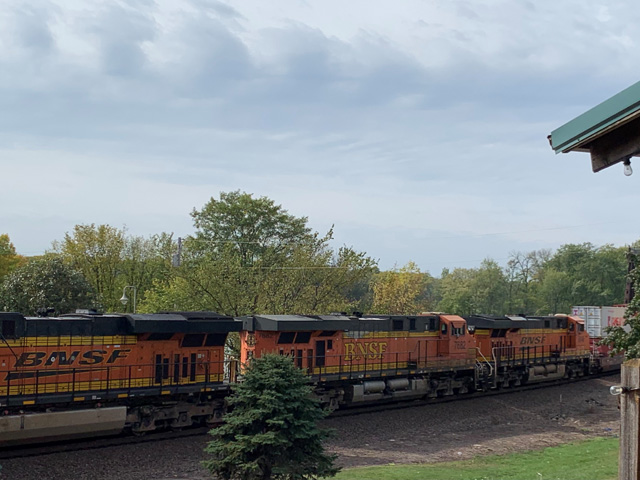Cash Market Moves
STB Extends Deadline Again for First Mile/Last Mile Comments
In a decision served Sept. 2, 2021, the Surface Transportation Board (STB) said on their website it was seeking comments from the shipping community, carriers and the public concerning what, if any, first mile/last mile (FMLM) issues they consider relevant. First mile/last mile service refers to the movement of railcars between a local railroad serving yard and a shipper or receiver facility. Shippers want more transparency on FMLM, basically what happens from point A to point B -- and everything in between -- that may affect service issues.
The STB also is seeking comment on whether further examination of FMLM issues is warranted and what, if any, actions may help address such issues, taking into account the information shippers already receive from carriers. The STB is particularly interested in knowing "whether metrics to measure FMLM service that are not now being reported to the board might have utility for the supply chain, and the potential burdens associated with any such reporting."
In that decision on Sept. 2, the STB invited "interested persons" to file comments by Oct. 18, with replies due by Nov. 16, 2021. On Sept. 7, the American Chemistry Council and The Fertilizer Institute filed a motion to extend the due dates for comments and replies to Dec. 17, 2021, and Feb. 17, 2022, respectively. In their filing, they stated, "The decision solicits extensive and detailed information from stakeholders and assert that the additional time is needed to gather information from their member companies, compile and analyze the material, and prepare substantive comments."
On Sept. 13, the Association of American Railroads (AAR) filed a reply in support of the requested extension of time, stating the additional time would facilitate the development of a robust record in response to the STB's inquiries. On Sept. 17, the American Short Line and Regional Railroad Association (ASLRRA) also filed a reply in support of the extension, stating it would aid ASLRRA's ability to meaningfully address the questions posed in the decision.
On Sept. 21, the STB published a motion to extend the deadlines for comments and replies to Dec. 17, and replies are due by Feb. 17, 2022.
P[L1] D[0x0] M[300x250] OOP[F] ADUNIT[] T[]
Various shipper groups have raised concerns within the last year to the STB about FMLM service and requested greater transparency of FMLM data. "In addition, in recent months, the STB has heard from various stakeholders regarding crew shortages and other issues stemming from the COVID-19 pandemic and worldwide supply chain complications, all of which have heightened the importance of the STB exploring FMLM service. As a result, the STB seeks comment on possible FMLM service issues, the design of potential metrics to measure such service and the burdens associated with any suggestions raised by commenters," the STB said.
Freight Waves reported, "In filings to STB last October, shippers said the FMLM data might help rail stakeholders better understand the nuances of rail service under precision scheduled railroading, an operational model that seeks to streamline operations. These nuances include data gathered when railcars shift from unit trains to manifest service, which could be valuable for smaller and non-unit train shippers."
The shippers said in their filings that data collected on "aggregate performance" could also help the STB understand "how rail carriers deploy resources within the contexts of rail volumes, the economy and operating conditions."
In response, railroads, in various filings a year ago to the STB, noted they have been working with shippers, especially during the COVID-19 pandemic, to modify schedules and adjust service levels. In those filings, which can be found in the Federal Register, railroads noted data is also limited in how it can help understand causality or the difference in rail service between commodities and other railroads.
Class I railroads already report certain data points to the STB in accordance with the proceeding Ex Parte 724. This data includes average train speeds and dwell times. Along with that, railroads have told the STB they provide local service metrics at the customer level and aggregated metrics would not provide customers with meaningful representation of their local service levels.
In a notice to the Federal Register by the STB on Sept. 8, the STB noted, "Shipper commenters may wish to provide context for their comments by including information about the quantity or volume of traffic they ship, their storage capacity, seasonality of their shipments (if any), work windows and other factors that make their facilities or operations unique. If requested, a protective order may be issued that would allow sensitive information to be filed under seal."
The STB requested, "Commenters should provide concrete examples, if possible, in identifying FMLM issues. As noted, some shippers have suggested that the STB collect additional service metrics to measure FMLM service, and commenters may wish to further address them."
Below is a link to the list of questions from the STB that commenters should feel free to use in order provide any information they believe will be helpful to the STB as it considers issues related to FMLM service. This link also provides more extensive information on FMLM: https://www.federalregister.gov/…
Mary Kennedy can be reached at mary.kennedy@dtn.com
Follow her on Twitter @MaryCKenn
(c) Copyright 2021 DTN, LLC. All rights reserved.




